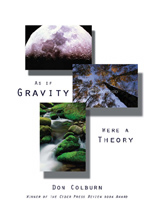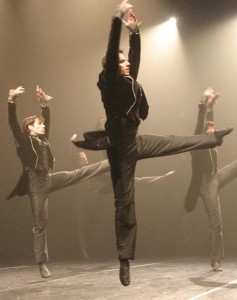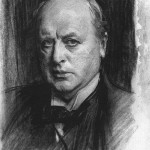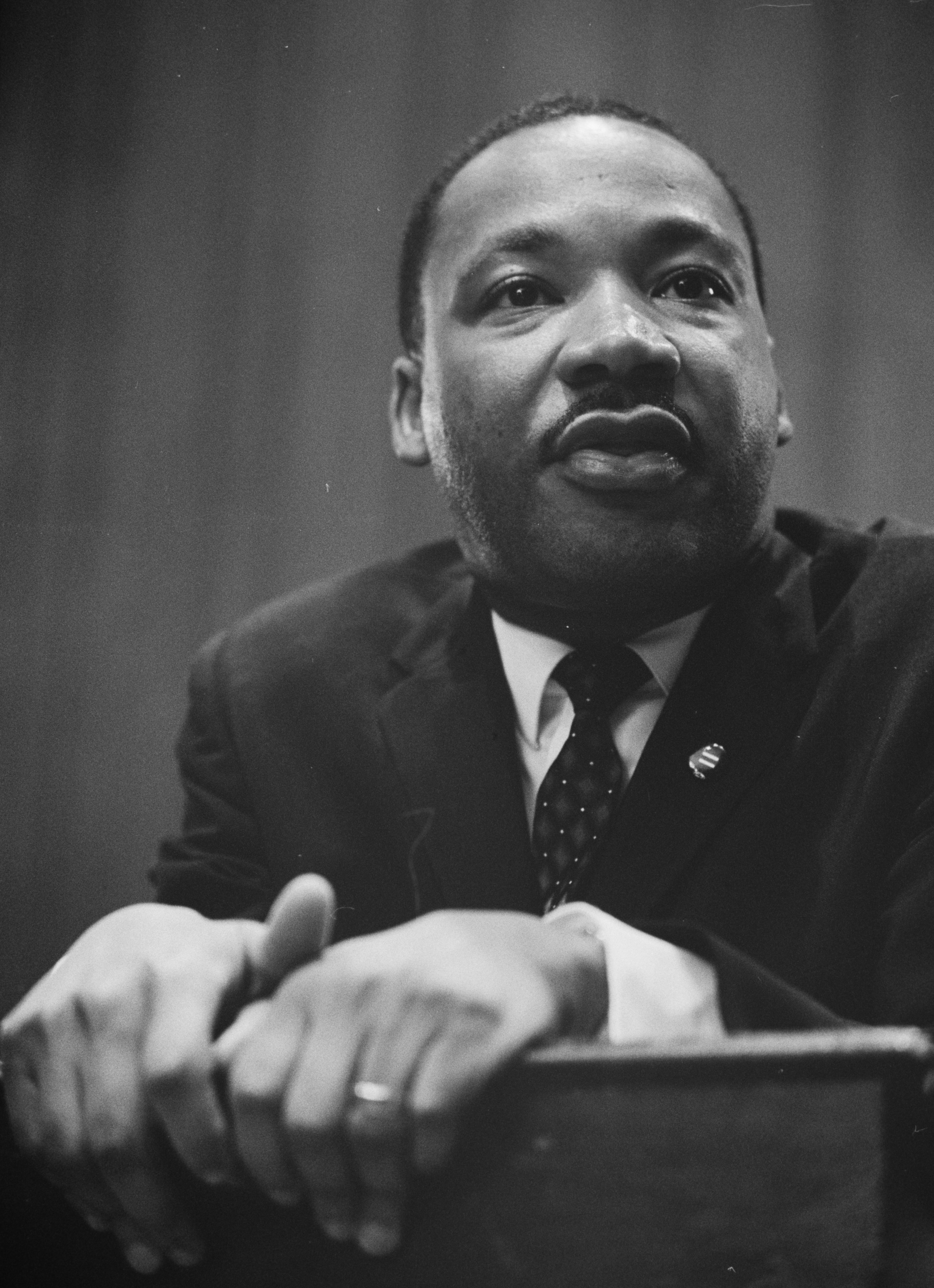By LAURA GRIMES
Anna Griffin’s column today in The Oregonian about poetry disappearing from buses makes my heart hurt. I love those poems, those found sparks of life, and I will sorely miss them if they disappear. Often, when I was lost in thought on the bus, I would spy one of those poems and read it over and over. I would crane my neck around other passengers to follow the lines.
 Perhaps if the poetry cards go away, riders could start carrying around books of poetry — reading them, exchanging them, passing them around. TriMet could have stacks of books on the bus, donated by riders, free for the taking and dropping off again.
Perhaps if the poetry cards go away, riders could start carrying around books of poetry — reading them, exchanging them, passing them around. TriMet could have stacks of books on the bus, donated by riders, free for the taking and dropping off again.
Perhaps riders could start writing poetry. Maybe TriMet could run its own poetry contest. It would be fitting for buses and MAX trains to run local poems. If TriMet pays to print cards anyway for public service announcements, why not some inspiring art? Worried about printing costs? Use recycled paper and Sharpies, have people write their own poems, pick the best and most legible, and paste them on the old boards. Why stop at poetry in motion? Decorate them. TriMet would be so hip. TriMet would be … so Portland.
What’s the harm? What’s to lose? Look at everything TriMet has to gain: public outreach, supporting the arts, good vibes for riders, a happier Portland, impressing tourists, giving itself a great image boost.
Maybe TriMet could spearhead various literary efforts: One week, a free ride if you have a poetry book, for instance. Another week if you have a book more than an inch thick. Another week if you have a Newbery Medal book. It could be a wonderfully organic, perfect-for-Portland kind of thing. Think of the heady, positive impact that could have.
When I had to start commuting on the bus, I didn’t entirely like the idea. I didn’t like the idea of sitting next to people who smelled like pee, or of listening to overblown phone conversations. But I quickly realized it was good head time. I liked being part of the everyday jostlings of people getting to places. The ride made me take the time to see and hear, and made my brain turn over many a matter.
My whole Henry James gig that ran in The Oregonian got its life on the bus.

And that’s where I read As If Gravity Were a Theory, a book of poetry by Don Colburn. I worked with Don at The Oregonian. He sat across from me. He whirs a whistle on occasion when a rowdy celebratory moment deserves it. He’s a health writer by day. But other times he writes beautiful, brain-tickling verse. His title poem ran in The Oregonian. It’s worth every careful winged word.
Don has no idea that I wrote a poem many months ago about reading his poetry on the bus. What poetry ride will you take? Will TriMet take up the challenge?
Don, I Read You on the Bus
Words flit by like traffic lights
blinking colors
in stop and go.The bus bends
the way you say clouds kneel
and people file on
clinking coins
tumbling.
It’s gray outside.Heads framed
by wide windows
scuzzy on the outside.
Whole bridges stand in
as backdrops
and then whiz gone.I drop in and out
of poems
the way I drop in and out
of people.
The everyday.
I rock and sway with suspension,
re-sort my bags
and zone in
on a life sliced uneasy.
I’m lost. Forgotten.
Unconsciously counting the meter
in my head,
rewording the words
and slipping into spaces
of someone else
in some other place.That was streets ago.
White tennis shoes
center my gaze
blue jeans
coat no hat
and the slow focus
to a face creased brown
like fresh-made paper
and lips flat quiet.Then the woman
and the hill and the pill.
I’m stepping with her
going up and going down
lost in her rhythm
and life’s seasonswhen the driver honks goodbye
to a toddler waving,
his eyes following small steps,
though his expression doesn’t change.My eyes refocus
to a tan trenchcoat,
black hat and headphones,
a paperback with bus ticket bookmarks.
He’s lost in a John Grisham world.Black words
make sense of
white paper
and when I read
there in your
poem
15th and Fremont,
my stop in just a few blocks,
it’s not just a coincidence,
but another everyday thing
in a whole spectrum
of in-between colors
in in-between places.
–Laura Grimes
 Books come in all shapes and sizes and perform all sorts of functions, in addition to acting as containment vessel for reading “matter.†And almost anything can function as bathroom reading. Where else memorize your credit card numbers? Now, it turns out, almost everything is worth the paper it’s printed on.
Books come in all shapes and sizes and perform all sorts of functions, in addition to acting as containment vessel for reading “matter.†And almost anything can function as bathroom reading. Where else memorize your credit card numbers? Now, it turns out, almost everything is worth the paper it’s printed on. Today is Yogi Berra’s 84th birthday, and it’s a good question whether baseball fans or lovers of language are lighting the most candles in celebration. If you’re both, line up for a slice of the cake.
Today is Yogi Berra’s 84th birthday, and it’s a good question whether baseball fans or lovers of language are lighting the most candles in celebration. If you’re both, line up for a slice of the cake. Today, as much of the world is eager to tell you, is William Shakespeare’s 445th birthday. The Bard of Avon, the Sultan of Stagecraft, the Titan of Tragedy, the Crown Prince of Comedy was born beneath a twinkling star on this day, April 23, in the Year of Our Lord 1564, whereupon he was wrapped in swaddling clothes and laid in a manger, and …
Today, as much of the world is eager to tell you, is William Shakespeare’s 445th birthday. The Bard of Avon, the Sultan of Stagecraft, the Titan of Tragedy, the Crown Prince of Comedy was born beneath a twinkling star on this day, April 23, in the Year of Our Lord 1564, whereupon he was wrapped in swaddling clothes and laid in a manger, and … All right, so I’m jumping to conclusions based on the thinnest of evidence. Which is pretty much, we here at Art Scatter tend to believe, exactly what the anti-Stratfordians have been doing all these years. The most rational response to this whole dust-up, we tend to believe, is that the guy whose name is on the cover actually wrote the stuff inside. But we also tend to think that, unless you own stock in downtown Stratford-Upon-Avon, which has a huge vested interest in the local boy actually being who he said he was, it doesn’t make a lot of difference. The play’s the thing. And the plays aren’t going away. (As a side note, Art Scatter would like to declare that we approve mightily of the historical existence of a character named Vicar Bretchgirdle. Did the good vicar know Sir Toby Belch?)
All right, so I’m jumping to conclusions based on the thinnest of evidence. Which is pretty much, we here at Art Scatter tend to believe, exactly what the anti-Stratfordians have been doing all these years. The most rational response to this whole dust-up, we tend to believe, is that the guy whose name is on the cover actually wrote the stuff inside. But we also tend to think that, unless you own stock in downtown Stratford-Upon-Avon, which has a huge vested interest in the local boy actually being who he said he was, it doesn’t make a lot of difference. The play’s the thing. And the plays aren’t going away. (As a side note, Art Scatter would like to declare that we approve mightily of the historical existence of a character named Vicar Bretchgirdle. Did the good vicar know Sir Toby Belch?)
 More poetically (and less argumentatively), the use of punctuation is a handy writers’ tool in the construction of mood and suggestion: “He’s driving fast fast fast” is simply faster to a reader’s eye than “He’s driving fast, fast, fast” — and if the blur of speed is what you’re trying to get across, using commas is like driving in the Indianapolis 500 with your emergency brake on.
More poetically (and less argumentatively), the use of punctuation is a handy writers’ tool in the construction of mood and suggestion: “He’s driving fast fast fast” is simply faster to a reader’s eye than “He’s driving fast, fast, fast” — and if the blur of speed is what you’re trying to get across, using commas is like driving in the Indianapolis 500 with your emergency brake on.  Things have been busy here at Scatter Central the last few days; so busy that we haven’t had a chance to post since we left poor
Things have been busy here at Scatter Central the last few days; so busy that we haven’t had a chance to post since we left poor Over at his alternate-universe home,
Over at his alternate-universe home,  Meanwhile, who’d have guessed that the path to understanding
Meanwhile, who’d have guessed that the path to understanding 


